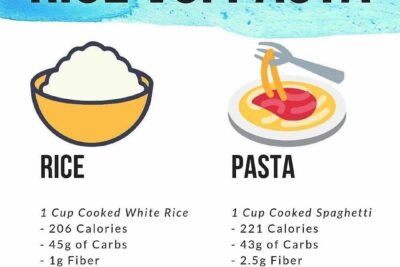
Starting the day with the right meal can make all the difference, especially for those managing diabetes. Fewer carbs for breakfast can improve blood glucose levels, setting a healthier tone for the rest of the day.
For individuals with type 2 diabetes, the morning meal is an opportunity to take control of their day. Shifting to lower carbohydrate options may help maintain stable blood sugar levels and prevent the spikes that are all too common with traditional high-carb breakfast foods.
🔍 Seeking a breakthrough in Type 2 Diabetes management?
Discover our expert insights and innovative approaches on ‘How to Cure Diabetes’.
Click to transform your health journey today!
What you\'ll find in this article?
- Why a low carb breakfast is beneficial
- How can fewer carbs help manage blood sugar levels?
- What are some low carb breakfast options?
- How does carbohydrate intake affect type 1 and type 2 diabetes?
- What are the downsides of fasting for blood sugar management?
- How can meal prep facilitate low carb eating?
- What role does fiber play in a low carb diet?
- Diving deeper into blood glucose management
- Related questions to explore
Why a low carb breakfast is beneficial
The benefits of a low carb breakfast extend beyond mere blood sugar management. Consuming fewer carbohydrates in the morning can lead to increased satiety, reduced cravings and a lower overall calorie intake throughout the day. This can be especially beneficial for individuals looking to manage their weight and reduce the risk of diabetes-related complications.
Moreover, a diet lower in carbs and higher in protein and healthy fats can improve metabolic markers. This includes reducing levels of triglycerides, which are a risk factor for cardiovascular disease, a common comorbidity with diabetes.
A balanced breakfast that includes nutrient-dense foods can steer you away from the energy crashes that often follow a high-carb meal. This steadier energy can improve focus and productivity, contributing to an overall better day.








Explore our specialized services in diabetes care 🌟.
From personalized diet plans to effective exercise routines, we have what you need to take control of Type 2 Diabetes.
Visit our services page now!
How can fewer carbs help manage blood sugar levels?
Carbohydrates have a direct impact on blood glucose levels. When you consume carbs, they are broken down into sugars, which enter the bloodstream and raise blood glucose levels. For those with diabetes, the body's ability to handle this influx of sugar is compromised, leading to higher blood sugar levels.
By reducing the intake of carbohydrates, especially refined carbs, you limit the body's need to manage a flood of sugar. This can help stabilize blood glucose levels and reduce the burden on insulin production and regulation.
Consistently managing blood sugar levels is crucial in preventing long-term damage to the body's systems, including nerves and blood vessels, which can result from sustained high blood glucose levels.
What are some low carb breakfast options?
- Scrambled eggs with spinach and feta cheese
- Chia seed pudding topped with nuts and berries
- Avocado and smoked salmon on a bed of mixed greens
- Almond flour pancakes with natural peanut butter
- Cottage cheese with sliced cucumbers and fresh dill
How does carbohydrate intake affect type 1 and type 2 diabetes?
While both types of diabetes are related to blood sugar management, they differ in how they affect the body. For Type 1 diabetics, who produce little to no insulin, carbohydrate intake must be carefully balanced with insulin therapy to avoid blood sugar extremes.
For Type 2 diabetics, who usually have insulin resistance, a low-carb diet can be particularly effective. It reduces the body's demand for insulin and can help improve insulin sensitivity over time. A consistent approach to eating fewer carbs can even lead to remission of type 2 diabetes in some cases.
Regardless of the type, carefully managing carbohydrate intake is a cornerstone of diabetes management, and a low-carb breakfast is a step in the right direction.
What are the downsides of fasting for blood sugar management?
Fasting, while beneficial for certain aspects of health, can pose challenges for blood sugar management. Skipping meals, particularly breakfast, can lead to significant fluctuations in blood sugar levels, which can be detrimental for diabetics.
Furthermore, intermittent fasting may not be suitable for everyone, especially those who require regular medication or insulin to manage their blood sugar levels. Fasting could potentially lead to hypoglycemia, a condition where blood sugar drops to dangerously low levels.
How can meal prep facilitate low carb eating?
Meal prepping is a game-changer for those aiming to maintain a low-carb diet. It takes the guesswork out of eating and helps avoid the temptation of reaching for carb-heavy convenience foods. Preparing a week's worth of breakfasts ahead of time ensures a healthy start to every day.
For example, batch cooking egg muffins or preparing smoothie bags can save time in the mornings. By having low-carb options at the ready, you're more likely to stick to your dietary goals.
Embracing meal prep also encourages variety in your diet, which is essential for obtaining a wide range of nutrients and preventing diet fatigue.
What role does fiber play in a low carb diet?
Even on a low-carb diet, fiber plays an essential role. It helps control blood sugar levels by slowing down the digestion of carbohydrates and the absorption of sugar. This action can prevent blood glucose spikes and contribute to overall blood sugar management.
Fiber also contributes to satiety, which can help curb appetite and prevent overeating. By choosing high-fiber, low-carb foods like leafy greens, flaxseeds, and nuts, you can enjoy the benefits of fiber without compromising your carb goals.
It's important to balance your intake of fiber with other nutrients to ensure you are not only managing your blood sugar levels but also supporting your overall health.
Diving deeper into blood glucose management
For a closer look at how fewer carbs for breakfast can improve blood glucose levels, let’s turn to recent research highlighted in this video, which provides practical insights and advice.
Does reducing carbs help blood sugar?
Yes, reducing carbs can significantly help in managing blood sugar levels. Since carbs break down into glucose, they have the most immediate impact on blood sugar. A lower carb intake can lead to reduced blood sugar spikes and an overall stabilization of blood glucose.
Those who actively manage their carb intake often notice an improvement in their blood sugar control, which is particularly important for diabetics or individuals with insulin resistance.
Can not eating enough carbs raise blood sugar?
While it might seem counterintuitive, not eating enough carbs can sometimes cause blood sugar to rise. This is due to the liver releasing glucose to provide energy when it detects a lack of fuel from food. However, for those with insulin resistance, the body might not respond to this glucose release effectively, leading to higher blood sugar levels.
Therefore, it's important to eat a balanced amount of carbs, focusing on low-glycemic options that provide steady energy without the spikes.
Does not eating breakfast raise blood sugar?
Skipping breakfast can lead to higher blood sugar levels, especially for individuals with diabetes. When a meal is missed, the body's hormonal balance shifts, which can lead to an increase in blood sugar. Additionally, it may lead to overeating later in the day, further destabilizing blood glucose levels.
Consistently consuming a balanced, low-carb breakfast can help maintain normal blood sugar levels throughout the day.
What is the best thing to eat in the morning to lower blood sugar?
The best breakfast options for lowering blood sugar are foods rich in protein, healthy fats, and fiber with fewer carbohydrates. Meals like an omelet with vegetables, Greek yogurt with nuts, or a protein shake with added fiber can provide sustained energy and minimize blood sugar spikes.
Choosing these types of meals can set the tone for better blood glucose management and provide the nutritional support needed for overall health.
✨ Other articles you might be interested in:



